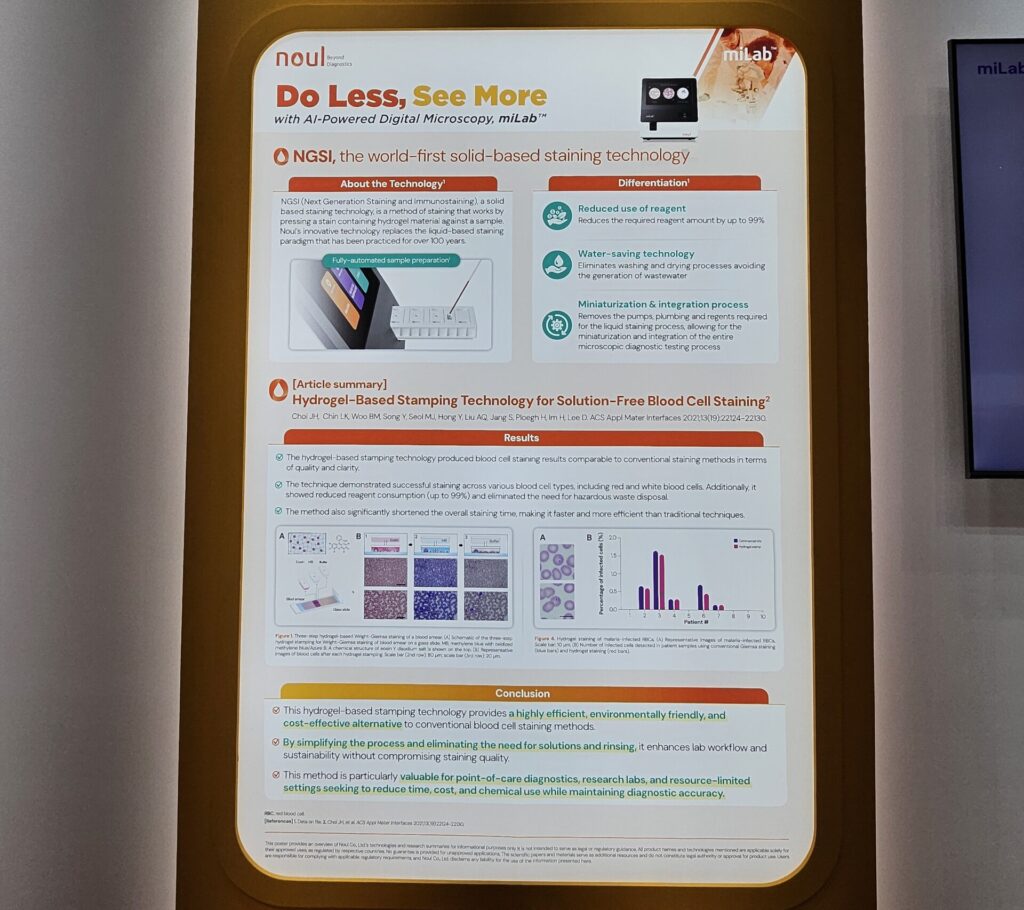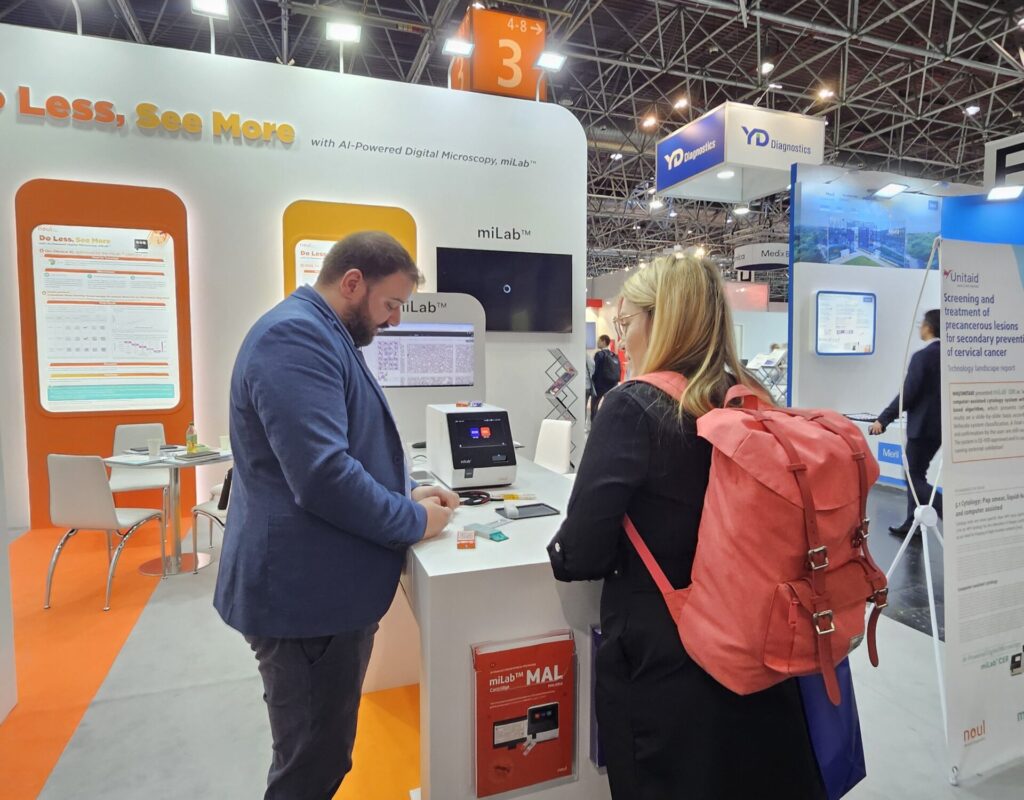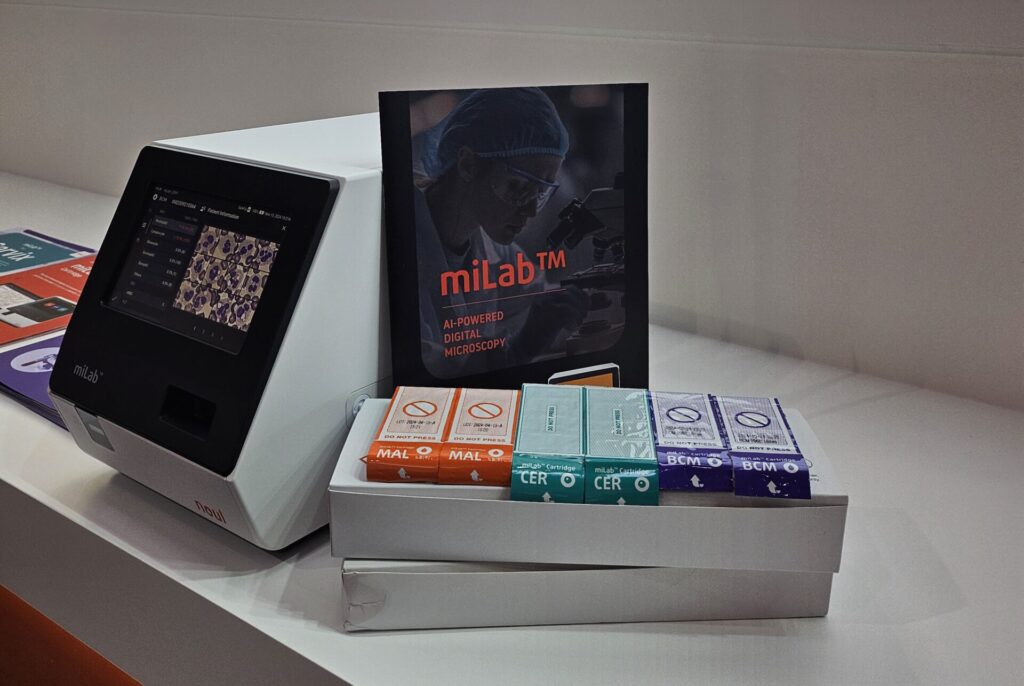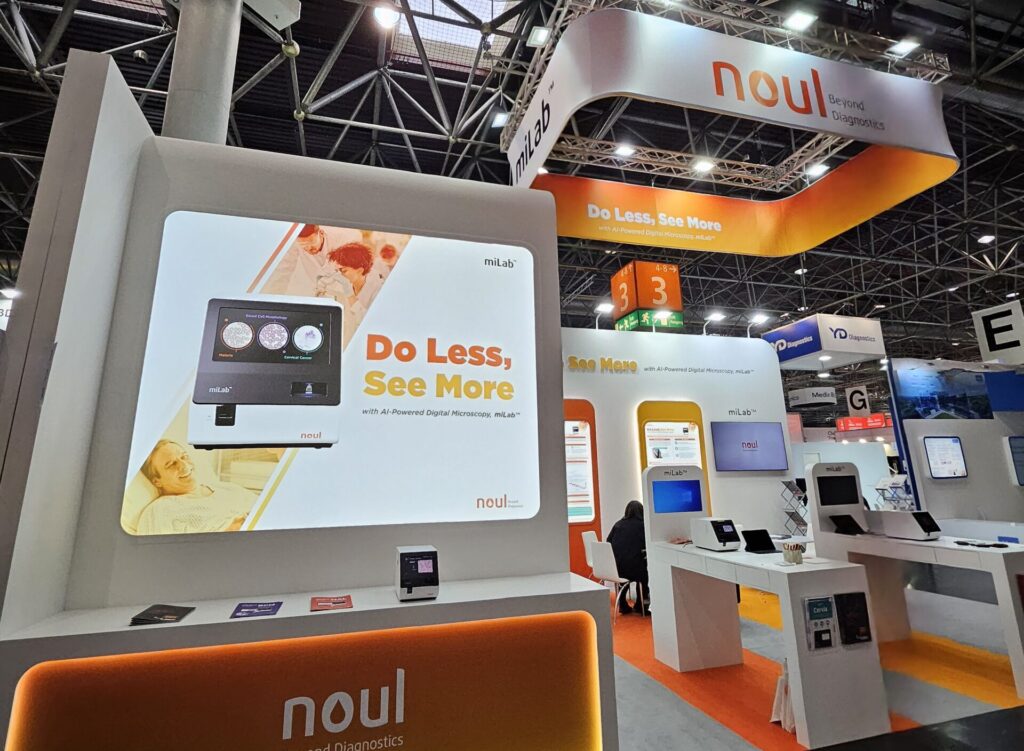MEDICA 2024 is the world’s foremost medical event. This success is showcased in the latest advancements in healthcare innovation.
MEDICA 2024 focuses on the improvement of global healthcare equity, and this year’s event brought attention to medical access programs that aim to bridge gaps in underserved regions. NOUL participated with its “Do Less, See More” campaign. This demonstrated the transformative role of AI diagnostics in modern healthcare and its contribution to medical access initiatives.
 Source : NOUL Co., Ltd’s LinkedIn
Source : NOUL Co., Ltd’s LinkedIn
As one of the most anticipated annual events in the medical industry, MEDICA attracts healthcare professionals, policymakers, and innovators from across the globe. This year’s program went beyond traditional presentations. Instead, it emphasizes actionable solutions to tackle disparities in healthcare access. NOUL’s participation reinforced its commitment to align cutting-edge technology with the needs of underserved populations.
Importance of Healthcare Innovation
 Source : NOUL
Source : NOUL
Innovation is the driving force behind every successful healthcare delivery. The incorporation of advanced technologies will help healthcare providers address inefficiencies, improve patient care, and expand access to underserved populations.
Healthcare innovation is absolutely indispensable to improve medical outcomes and ensure operational efficiency. Tools such as AI diagnostics and digital health platforms simplify workflows, reduce errors, and make diagnostics more accessible.
This is especially important in global medical access programs, where solutions are needed to overcome traditional healthcare barriers. Recent trends in healthcare innovation (e.g., artificial intelligence) will reshape diagnostics, disease management, and healthcare delivery.
For instance, advances in telemedicine and AI-driven platforms have made it possible to connect remote areas to specialized care. This granted patients access to accurate diagnoses and treatments without the need for extensive travel. Another example is the innovation in portable diagnostic tools and mobile health clinics. These tools ensure that even the most resource-constrained areas can benefit from high-quality healthcare services.
Role of AI Diagnostics
 Source : NOUL
Source : NOUL
The integration of AI diagnostics has started a new era of precision and speed in medical testing. AI-based systems are able to reduce diagnostic errors, optimize processes, and deliver timely results.
Leveraging data-driven insights from AI enhances healthcare accessibility, which makes it a critical component of medical access programs. Studies and real-world applications have demonstrated that AI-powered tools improve outcomes and make it possible to detect diseases early on in the process. For instance, AI solutions in resource-limited settings have shown significant success in the management of healthcare inequities.
Additionally, AI diagnostics can learn and adapt to new data, continuously improve over time. This adaptability allows for more nuanced and precise diagnoses, particularly in complex cases. For patients, it means faster and more reliable results. This is very important in critical conditions, such as severe infections, cancer, and chronic illnesses.
NOUL’s miLab™ Solutions
 Source : NOUL
Source : NOUL
NOUL’s miLab™ suite of technologies is a prime example of the power of healthcare innovation. NOUL’s miLab™ solutions address critical challenges in global healthcare. For example, they improve diagnostic accuracy but remain accessible and easy to use.
Here are the three main areas for innovation:
- MAL (Malaria Diagnostics): A tool that’s specifically designed to detect malaria in underserved regions.
- BCM (Blood Count & Morphology): This solution identifies blood disorders.
- CER (Cervical Cell Analysis): As the name implies, this technology focuses on women’s health. It supports preventive care and allows for the early detection of cervical disorders.
NOUL’s “Do Less, See More” campaign communicated the simplicity and impact of miLab™ technologies, which illustrates how they can transform medical diagnostics and expand access to care. The miLab™ system is unique in its approach. You see, it combines portability, ease of use, and cutting-edge AI algorithms to provide high-quality diagnostics even in difficult environments.
Our Presence at MEDICA 2024
 Source : NOUL
Source : NOUL
At MEDICA 2024, our booth was a focal point for attendees who showed interest in cutting-edge diagnostic technologies. Visitors were introduced to miLab™’s AI-powered solutions and learned about their applications in the management of global healthcare disparities.
The event served as an interactive platform where industry professionals explored NOUL’s innovations, including the role of AI diagnostics and NGSI technology in the diagnosis of patients. Exclusive materials and promotional items that were provided during the event highlighted NOUL’s dedication to healthcare equity and innovation.
The company’s participation also encouraged meaningful dialogue with other experts in healthcare innovation and stakeholders in the medical field. These discussions shed some light on the shared responsibility of the global healthcare community to make advanced diagnostic technologies available to all.
Conclusion
NOUL’s participation in MEDICA 2024 emphasized its commitment to advance global medicine through healthcare innovation. The “Do Less, See More” campaign highlighted the transformative potential of miLab™ technologies in the management of diagnostic challenges and support of medical access programs.
The leverage of the power of AI diagnostics, NOUL paves the way for a more equitable and efficient healthcare system. For those unable to attend MEDICA 2024, more information about NOUL’s miLab™ solutions can be found on our official page. You can also contact NOUL for miLab™ via this link.

